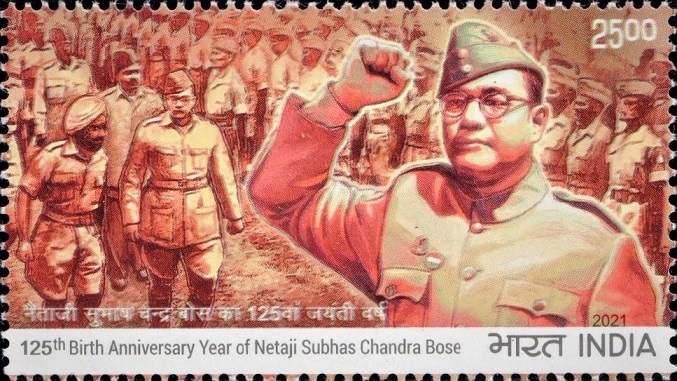
Netaji Subhas Chandra Bose 2021
A commemorative postage stamp on Subhash Chandra Bose Jayanti 2021, 125th Birth Anniversary Year of Netaji :

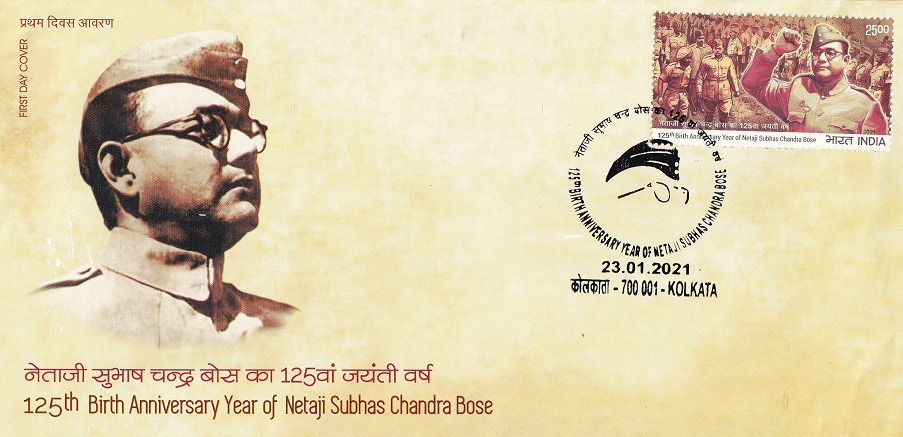
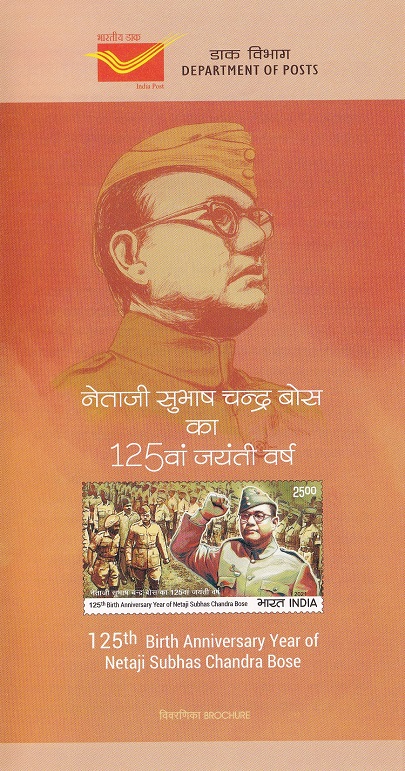 Issued by India
Issued by India
Issued on Jan 23, 2021
Issued for : The Government of India will commemorate the 125th Birth Anniversary of Netaji on 23 January 2022. Department of Posts is pleased to issue a commemorative postage stamp on 125th Birth Anniversary Year of Netaji Subhas Chandra Bose to begin the year long celebrations.
Credits :
Stamps, FDC and Brochure : Sh. Kamleshwar Singh
Cancellation Cachet : Smt. Alka Sharma
Type : Stamp, Mint Condition
Colour : Multi Colour
Denomination : 2500 Paise
Stamps Printed : 504000
Printing Process : Wet Offset
Printer : Security Printing Press, Hyderabad
Name : Subhas Chandra Bose
Born on Jan 23, 1897 at Cuttack, Orissa Division, Bengal Province, British India [now in Cuttack district, Odisha, India]
Died on Aug 18, 1945 at Army Hospital Nanmon Branch, Taihoku, Japanese Taiwan [now Taipei City Hospital Heping Fuyou Branch, Taipei, Taiwan]
About :
- Subhas Chandra Bose, fondly called Netaji who was born on 23 January 1897, was undoubtedly one of the most prominent Indian nationalist whose defiant patriotism made him a hero in India.
- He became President of the Indian National Congress in 1938. However, soon after being re-elected in 1939, he was ousted from Congress leadership positions following differences with the Congress high command. He was subsequently placed under house arrest by the British before bravely escaping from India in 1940.
- Netaji arrived in Germany in April 1941, where the leadership offered unexpected cold sympathy for the cause of India’s independence. However, he did not divert from his goal which was freedom for India. In November 1941, with German funds, a Free India Centre was set up in Berlin and soon a Free India Radio, on which he would make nightly broadcasts. A 3,000-strong Free India Legion, comprising Indians captured by Erwin Rommel’s Afrika Korps, was also formed to aid in a possible future German invasion of India. Later the same year, with German help, he was transferred to a Japanese submarine from which he disembarked in Japanese-held Sumatra in May 1943.
- With Japanese support, Netaji revamped the Indian National Army (INA). Before long the Provisional Government of Free India, presided by Netaji, was formed in the Japanese-occupied Andaman and Nicobar Islands. Netaji had great drive and charisma. The INA under Netaji was a model of unity in diversity comprising a splendid mix of ethnicity, religion, and even gender from all regions of India.
- The Japanese also took possession of Andaman and Nicobar Islands in 1942 and a year later, the islands were renamed Shaheed (Martyr) and Swaraj (Independence). During Netaji’s only visit to the islands in early 1944, India hoisted its own tri-colour flag for the first time. On the Indian mainland, an Indian Tricolour, modelled after that of the Indian National Congress, was raised for the first time in the town of Moirang, in Manipur, in north-eastern India. On 6 July 1944, in a speech broadcast by the Azad Hind Radio from Singapore. Netaji addressed Mahatma Gandhi as the “Father of the Nation” and asked for his blessings and good wishes for the war he was fighting. This was the first time that Gandhiji was referred to by this honorific title.
- Netaji believed in the Bhagavad Gita as a great source of inspiration for the struggle against the British. Swami Vivekananda’s teachings on universalism, his nationalist thoughts and his emphasis on social service and reform had all inspired Netaji from his very young days. He believed that socialism in India owed its origins to Swami Vivekananda. He had clearly expressed his belief that democracy was the best option for India. The most famous quote of Netaji was “Give me blood and I will give you freedom”. Another famous quote was “Dilli Chalo” (“On to Delhi”). This was the call he used to give the INA armies to motivate them. “Jai Hind” or “Glory to India” was another slogan used by him and later adopted by the Government of India and the Indian Armed Forces. Netaji was considered a patriot even by some of his rivals in the Congress. Gandhi himself wrote that Bose’s “… patriotism is second to none”, and he was moved to proclaim after Netaji’s death that he was a “prince among patriots” – a reference, in particular, to his achievement in integrating women and men from all the regions and religions of India in the Indian National Army. Netaji wanted freedom for India at the earliest opportunity.
- Text : Sh. Pallab Bose.



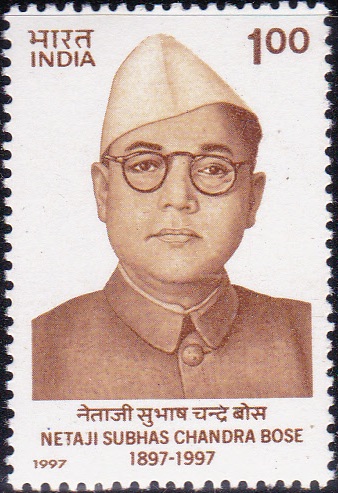


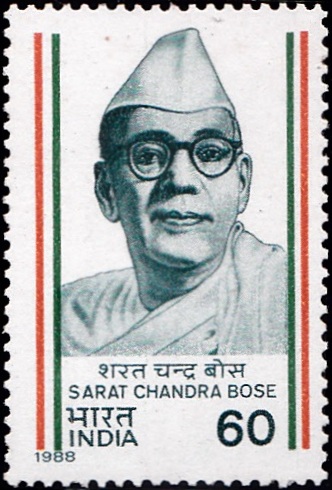
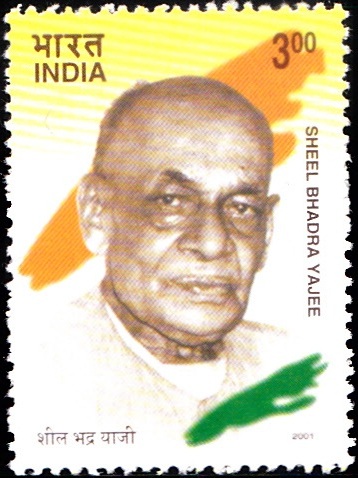
[…] him to become the President for the 48th Congress session held at Bombay in 1934. When in 1939, Subash Chander Bose resigned from the Presidentship of the Congress, Rajendra Prasad had to accept the responsibility […]
[…] his graduation and Post Graduation from the F.C. College, Lahore (now in Pakistan). An admirer of Subhash Chandra Bose, Maulana Abdul Kalam Azad and the Zutshi sisters, he was also influenced with the lives of Shivaji […]
[…] his movement, particularly in India and as well as the western world. Great freedom fighters like Netaji Subhas Chandra Bose, Dr. Shyama Prasad Mukherjee, Tripuradhis Maharaja Manikya Bahadur, Sri Madan Mohan Malviya and […]
[…] of his ancestral temple to all. His pivotal role in the Congress Working Committee, nominated by Subhas Chandra Bose in 1938, facilitated his deep engagement with issues of national importance, including the […]